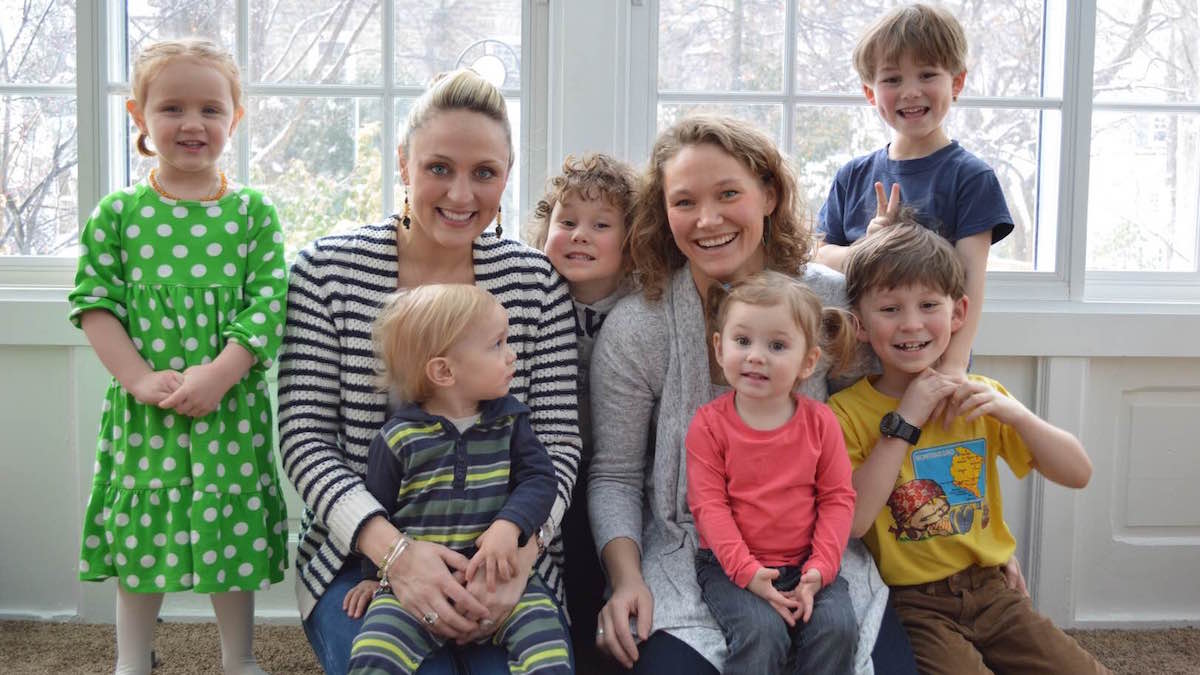Northwest Philadelphia home-based franchise targets new moms, doulas

(Courtesy of Our Baby Class)
New moms’ lack of experience leaves them vulnerable and in need of help navigating their new normal. This is the idea behind Our Baby Class, a start up which recently celebrated its first anniversary.
Alisha Glennon and Alisson Kolodner, both from W. Mt. Airy, launched the company in February 2015 with eight classes that address common new parent concerns like infant sleep, tips and tricks for the early days and postpartum care.
But though their website touts mentor-led classes and a community of peers, what the company is really selling is the chance to be an independent business owner.
OBC brings in its revenue not by hosting classes, but by training women to teach its signature curriculum.
In its first year, Kolodner and Glennon have trained 31 women to offer OBC classes in five states — Pennsylvania, Maryland, Virginia, New Jersey and New York, plus the District of Columbia.
OBC’s curriculum is similar in scope to what doulas, non-medical birth and postpartum service providers, learn in order to assist families after their children are born.
Glennon, a doula with a background in marketing, and Kolodner, a Bradley Method childbirth educator and former math teacher, said OBC came about because they noticed an absence of support available to postpartum moms.
“I was getting people ready for birth and then abandoning them,” Kolodner said.
Together, they developed an “intuitive approach” curriculum from their own motherhood experiences and by keeping tabs on the common questions new parents posed on message boards and in new mom groups.
Glennon said they take a special pride in supporting parents in their own decisions about how best to care for their children.
A $1,200 investment
The company does not push its teachers to recruit other teachers like a typical multi-level marketing business, but actively enlists from a network of birthing professionals, Glennon said.
To teach an OBC class requires an investment of $1,200, which covers one weekend of instruction to learn the company model and principals.
For Cathy McCormick, a certified doula from Collingswood, N.J. who knows Glennon through the Philadelphia Alliance for Labor Support, the training is an investment in her existing nine-year business as a certified doula and a tax write-off.
Plus, her doula fee for just one client can cover the cost.
“Anyone who wants to do this with quality in a thoughtful way will have to pay money,” she said.
McCormick said the price is not out of line compared to other similar training options. Initial doula training, for example, can cost about the same and takes place over three days. To be certified, however, costs more and can take months to complete.
After training, OBC provides branded marketing materials and a bio page on their website. Instructors, however, are responsible for all operating expenses, such as rent for class meeting space and advertising. They also must shell out money for the OBC workbooks (between $5 and $10, depending on the class) required of each of their prospective students and pay an annual affiliate fee of $200.
Instructors do keep 100 percent of their earnings, if they can manage to attract students.
But newly trained OBC instructors have no guarantees for success.
Glennon and Kolodner have never taught OBC classes themselves and they have yet to track the success rate of their graduates to provide average earning statistics.
Since completing training last autumn, McCormick says she has yet to get enough folks interested in group classes. She has, instead, been offering a la carte classes at $50 per one-on-one session to her existing clients and making sales one to two times a month.
She has an agreement with local consignment chain, The Nesting House, to host OBC core series ($150 for four classes) at their West Philly and Collingswood locations and hopes to see increased interest during the warmer weather months.
Going national
Kolodner says business in the first year has exceeded their expectations. The duo declined to disclose their profits.
Taking OBC to a national market is their ultimate goal, but don’t look for them on ABC’s “Shark Tank” anytime soon.
“They wouldn’t find us investable at the moment,” she joked.
OBC is developing three more classes geared to toddlers, siblings and grandparents that will be offered by the end of this year. The company is also working on becoming a paid sponsor to get its promotional swag in gift bags given to new mothers by a local hospital.
WHYY is your source for fact-based, in-depth journalism and information. As a nonprofit organization, we rely on financial support from readers like you. Please give today.




